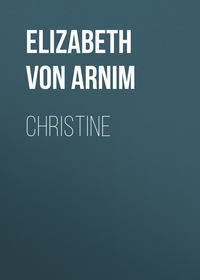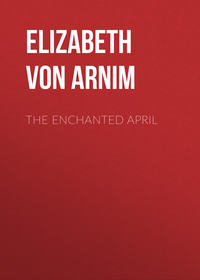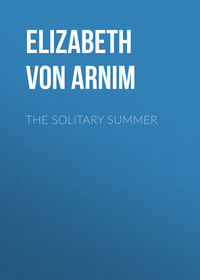 полная версия
полная версияVera
'Come along.' said Wemyss, drawing her away, 'I want my coffee. Don't you think it's a good idea,' he went on, as he led her down the hall to the library door, 'to have life-sized photographs instead of those idiotic portraits that are never the least like people?'
'Oh, a very good idea,' said Lucy mechanically, bracing herself for the library. There was only one room in the house she dreaded going into more than the library, and that was the sitting-room on the top floor,—her sitting-room and Vera's.
'Next week we'll go to a photographer's in London and have my little girl done,' said Wemyss, pushing open the library door, 'and then I'll have her exactly as God made her, without some artist idiot or other coming butting-in with his idea of her. God's idea of her is good enough for me. They won't have to enlarge much,' he laughed, 'to get you life-size, you midge. Vera was five foot ten. Now isn't this a fine room? Look—there's the river. Isn't it jolly being so close to it? Come round here—don't knock against my writing-table, now. Look—there's only the towpath between the river and the garden. Lord, what a beastly day. It might just as easily have been a beautiful spring day and us having our coffee out on the terrace. Don't you think this is a beautiful look-out,—so typically English with the beautiful green lawn and the bit of lush grass along the towpath, and the river. There's no river like it in the world, is there, little Love. Say you think it's the most beautiful river in the world'—he hugged her close—'say you think it's a hundred times better than that beastly French one we got so sick of with all those châteaux.'
'Oh, a hundred times better,' said Lucy.
They were standing at the window, with his arm round her shoulder. There was just room for them between it and the writing-table. Outside was the flagged terrace, and then a very green lawn with worms and blackbirds on it and a flagged path down the middle leading to a little iron gate. There was no willow hedge along the river end of the square garden, so as not to interrupt the view,—only the iron railings and wire-netting. Terra-cotta vases, which later on would be a blaze of geraniums, Wemyss explained, stood at intervals on each side of the path. The river, swollen and brown, slid past Wemyss's frontage very quickly that day, for there had been much rain. The clouds scudding across the sky before the wind were not in such a hurry but that every now and then they let loose a violent gust of ram, soaking the flags of the terrace again just as the wind had begun to dry them up. How could he stand there, she thought, holding her tight so that she couldn't get away, making her look out at the very place on those flags not two yards off....
But the next minute she thought how right he really was, how absolutely the only way this was to do the thing. Perfect simplicity was the one way to meet this situation successfully; and she herself was so far from simplicity that here she was shrinking, not able to bear to look, wanting only to hide her face,—oh, he was wonderful, and she was the most ridiculous of fools.
She pressed very close to him, and put up her face to his, shutting her eyes, for so she shut out the desolating garden with its foreground of murderous flags.
'What is it, little Love?' asked Wemyss.
'Kiss me,' she said; and he laughed and kissed her, but hastily, because he wanted her to go on admiring the view.
She still, however, held up her face. 'Kiss my eyes,' she whispered, keeping them shut. 'They're tired–'
He laughed again, but with a slight impatience, and kissed her eyes; and then, suddenly struck by her little blind face so close to his, the strong light from the big window showing all its delicate curves and delicious softnesses, his Lucy's face, his own little wife's, he kissed her really, as she loved him to kiss her, becoming absorbed only in his love.
'Oh, I love you, love you–' murmured Lucy, clinging to him, making secret vows of sensibleness, of wholesomeness, of a determined, unfailing future simplicity.
'Aren't we happy,' he said, pausing in his kisses to gaze down at what was now his face, for was it not much more his than hers? Of course it was his. She never saw it, except when she specially went to look, but he saw it all the time; she only had duties in regard to it, but he was on the higher plane of only having joys. She washed it, but he kissed it. And he kissed it when he liked and as much as ever he liked. 'Isn't it wonderful being married,' he said, gazing down at this delightful thing that was his very own for ever.
'Oh—wonderful!' murmured Lucy, opening her eyes and gazing into his.
Her face broke into a charming smile. 'You have the dearest eyes,' she said, putting up her finger and gently tracing his eyebrows with it.
Wemyss's eyes, full at that moment of love and pride, were certainly dear eyes, but a noise at the other end of the room made Lucy jump so in his arms, gave her apparently such a fright, that when he turned his head to see who it was daring to interrupt them, daring to startle his little girl like that, and beheld the parlourmaid, his eyes weren't dear at all but very angry.
The parlourmaid had come in with the coffee; and seeing the two interlaced figures against the light of the big window had pulled up short, uncertain what to do. This pulling up had jerked a spoon off its saucer onto the floor with a loud rattle because of the floor not having a carpet on it and being of polished oak, and it was this noise that made Lucy jump so excessively that her jump actually made Wemyss jump too.
In the parlourmaid's untrained phraseology there had been a good deal of billing and cooing during luncheon, and even in the hall before luncheon there were examples of it, but what she found going on in the library was enough to make anybody stop dead and upset things,—it was such, she said afterwards in the kitchen, that if she didn't know for a fact that they were really married she wouldn't have believed it. Married people in the parlourmaid's experience didn't behave like that. What affection there was was exhibited before, and not after, marriage. And she went on to describe the way in which Wemyss—thus briefly and irreverently did they talk of their master in the kitchen—had flown at her for having come into the library. 'After telling me to,' she said. 'After saying, "We'll 'ave coffee in the library."' And they all agreed, as they had often before agreed, that if it weren't that he was in London half the time they wouldn't stay in the place five minutes.
Meanwhile Wemyss and Lucy were sitting side by side in two enormous chairs facing the unlit library fire drinking their coffee. The fire was only lit in the evenings, explained Wemyss, after the 1st of April; the weather ought to be warm enough by then to do without fires in the daytime, and if it wasn't it was its own look-out.
'Why did you jump so?' he asked. 'You gave me such a start. I couldn't think what was the matter.'
'I don't know,' said Lucy, faintly flushing. 'Perhaps'—she smiled at him over the arm of the enormous chair in which she almost totally disappeared—'because the maid caught us.'
'Caught us?'
'Being so particularly affectionate.'
'I like that,' said Wemyss. 'Fancy feeling guilty because you're being affectionate to your own husband.'
'Oh, well,' laughed Lucy, 'don't forget I haven't had him long.'
'You're such a complicated little thing. I shall have to take you seriously in hand and teach you to be natural. I can't have you having all sorts of finicking ideas about not doing this and not doing the other before servants. Servants don't matter. I never consider them.'
'I wish you had considered the poor parlourmaid,' said Lucy, seeing that he was in an unoffended frame of mind. 'Why did you give her such a dreadful scolding?'
'Why? Because she made you jump so. You couldn't have jumped more if you had thought it was a ghost. I won't have your flesh being made to creep.'
'But it crept much worse when I heard the things you said to her.'
'Nonsense. These people have to be kept in order. What did the woman mean by coming in like that?'
'Why, you told her to bring us coffee.'
'But I didn't tell her to make an infernal noise by dropping spoons all over the place.'
'That was because she got just as great a fright when she saw us as I did when I heard her.'
'I don't care what she got. Her business is not to drop things. That's what I pay her for. But look here—don't you go thinking such a lot of tangled-up things and arguing. Do, for goodness sake, try and be simple.'
'I feel very simple,' said Lucy, smiling and putting out her hand to him, for his face was clouding. 'Do you know, Everard, I believe what's the matter with me is that I'm too simple.'
Wemyss roared, and forgot how near he was getting to being hurt. 'You simple! You're the most complicated–'
'No I'm not. I've got the untutored mind and uncontrolled emotions of a savage. That's really why I jumped.'
'Lord,' laughed Wemyss, 'listen to her how she talks. Anybody might think she was clever, saying such big long words, if they didn't know she was just her Everard's own little wife. Come here, my little savage—come and sit on your husband's knee and tell him all about it.'
He held out his arms, and Lucy got up and went into them and he rocked her and said, 'There, there—was it a little untutored savage then–'
But she didn't tell him all about it, first because by now she knew that to tell him all about anything was asking for trouble, and second because he didn't really want to know. Everard, she was beginning to realise with much surprise, preferred not to know. He was not merely incurious as to other people's ideas and opinions, he definitely preferred to be unconscious of them.
This was a great contrast to the restless curiosity and interest of her father and his friends, to their insatiable hunger for discussion, for argument; and it much surprised Lucy. Discussion was the very salt of life for them,—a tireless exploration of each other's ideas, a clashing of them together, and out of that clashing the creation of fresh ones. To Everard, Lucy was beginning to perceive, discussion merely meant contradiction, and he disliked contradiction, he disliked even difference of opinion. 'There's only one way of looking at a thing, and that's the right way,' as he said, 'so what's the good of such a lot of talk?'
The right way was his way; and though he seemed by his direct, unswerving methods to succeed in living mentally in a great calm, and though after the fevers of her father's set this was to her immensely restful, was it really a good thing? Didn't it cut one off from growth? Didn't it shut one in an isolation? Wasn't it, frankly, rather like death? Besides, she had doubts as to whether it were true that there was only one way of looking at a thing, and couldn't quite believe that his way was invariably the right way. But what did it matter after all, thought Lucy, snuggled up on his knee with one arm round his neck, compared to the great, glorious fact of their love? That at least was indisputable and splendid. As to the rest, truth would go on being truth whether Everard saw it or not; and if she were not going to be able to talk over things with him she could anyhow kiss him, and how sweet that was, thought Lucy. They understood each other perfectly when they kissed. What, indeed, when such sweet means of communion existed, was the good of a lot of talk?
'I believe you're asleep' said Wemyss, looking down at the face on his breast.
'Sound,' said Lucy, smiling, her eyes shut.
'My baby.'
'My Everard.'
XVIII
But this only lasted as long as his pipe lasted. When that was finished he put her off his knee, and said he was now ready to gratify her impatience and show her everything; they would go over the house first, and then the garden and outbuildings.
No woman was ever less impatient than Lucy. However, she pulled her hat straight and tried to seem all readiness and expectancy. She wished the wind wouldn't howl so. What an extraordinary dreary place the library was. Well, any place would be dreary at half-past two o'clock on such an afternoon, without a fire and with the rain beating against the window, and that dreadful terrace just outside.
Wemyss stooped to knock out the ashes of his pipe on the bars of the empty grate, and Lucy carefully kept her head turned away from the window and the terrace towards the other end of the room. The other end was filled with bookshelves from floor to ceiling, and the books, in neat rows and uniform editions, were packed so tightly in the shelves that no one but an unusually determined reader would have the energy to wrench one out. Reading was evidently not encouraged, for not only were the books shut in behind glass doors, but the doors were kept locked and the key hung on Wemyss's watch-chain. Lucy discovered this when Wemyss, putting his pipe in his pocket, took her by the arm and walked her down the room to admire the shelves. One of the volumes caught her eye, and she tried to open the glass door to take it out and look at it. 'Why,' she said surprised, 'it's locked.'
'Of course,' said Wemyss.
'Why but then nobody can get at them.'
'Precisely.'
'But–'
'People are so untrustworthy about books. I took pains to arrange mine myself, and they're all in first-class-bindings and I don't want them taken out and left lying anywhere by Tom, Dick, and Harry. If any one wants to read they can come and ask me. Then I know exactly what is taken, and can see that it is put back.' And he held up the key on his watch-chain.
'But doesn't that rather discourage people?' asked Lucy, who was accustomed to the most careless familiarity in intercourse with books, to books loose everywhere, books overflowing out of their shelves, books in every room, instantly accessible books, friendly books, books used to being read aloud, with their hospitable pages falling open at a touch.
'All the better,' said Wemyss. 'I don't want anybody to read my books.'
Lucy laughed, though she was dismayed inside. 'Oh Everard—' she said, 'not even me?'
'You? You're different. You're my own little girl. Whenever you want to, all you've got to do is to come and say, "Everard, your Lucy wants to read," and I'll unlock the bookcase.'
'But—I shall be afraid I may be disturbing you.'
'People who love each other can't ever disturb each other.'
'That's true,' said Lucy.
'And they shouldn't ever be afraid of it.'
'I suppose they shouldn't,' said Lucy.
'So be simple, and when you want a thing just say so.' Lucy said she would, and promised with many kisses to be simple, but she couldn't help privately thinking it a difficult way of getting at a book.
'Macaulay, Dickens, Scott, Thackeray, British Poets, English Men of Letters, Encyclopædia Britannica—I think there's about everything,' said Wemyss, going over the gilt names on the backs of the volumes with much satisfaction as he stood holding her in front of them. 'Whiteley's did it for me. I said I had room for so and so many of such and such sizes of the best modern writers in good bindings. I think they did it very well, don't you little Love?'
'Very well,' said Lucy, eyeing the shelves doubtfully.
She was of those who don't like the feel of prize books in their hands, and all Wemyss's books might have been presented as prizes to deserving schoolboys. They were handsome; their edges—she couldn't see them, but she was sure—were marbled. They wouldn't open easily, and one's thumbs would have to do a lot of tiring holding while one's eyes tried to peep at the words tucked away towards the central crease. These were books with which one took no liberties. She couldn't imagine idly turning their pages in some lazy position out on the grass. Besides, their pages wouldn't be idly turned; they would be, she was sure, obstinate with expensiveness, stiff with the leather and gold of their covers.
Lucy stared at them, thinking all this so as not to think other things. What she wanted to shut out was the wind sobbing up and down that terrace behind her, and the consciousness of the fierce intermittent squalls of rain beating on its flags, and the certainty that upstairs.... Had Everard no imagination, she thought, with a sudden flare of rebellion, that he should expect her to use and to like using the very sitting-room where Vera–
With a quick shiver she grabbed at her thoughts and caught them just in time.
'Do you like Macaulay?' she asked, lingering in front of the bookcase, for he was beginning to move her off towards the door.
'I haven't read him,' said Wemyss, still moving her.
'Which of all these do you like best?' she asked, holding back.
'Oh, I don't know,' said Wemyss, pausing a moment, pleased by her evident interest in his books. 'I haven't much time for reading, you must remember. I'm a busy man. By the time I've finished my day's work, I'm not inclined for much more than the evening paper and a game of bridge.'
'But what will you do with me, who don't play bridge?'
'Lord, you don't suppose I shall want to play bridge now that I've got you?' he said. 'All I shall want is just to sit and look at you.'
She turned red with swift pleasure, and laughed, and hugged the arm that was thrust through hers leading her to the door. How much she adored him; when he said dear, absurd, simple things like that, how much she adored him!
'Come upstairs now and take off your hat,' said Wemyss. 'I want to see what my bobbed hair looks like in my home. Besides, aren't you dying to see our bedroom?'
'Dying,' said Lucy, going up the oak staircase with a stout, determined heart.
The bedroom was over the library, and was the same size and with the same kind of window. Where the bookcase stood in the room below, stood the bed: a double, or even a treble, bed, so very big was it, facing the window past which Vera—it was no use, she couldn't get away from Vera—having slept her appointed number of nights, fell and was finished. But she wasn't finished. If only she had slipped away out of memory, out of imagination, thought Lucy … but she hadn't, she hadn't—and this was her room, and that intelligent-eyed thin thing had slept in it for years and years, and for years and years the looking-glass had reflected her while she had dressed and undressed, dressed and undressed before it—regularly, day after day, year after year—oh, what a trouble—and her thin long hands had piled up her hair—Lucy could see her sitting there piling it on the top of her small head—sitting at the dressing-table in the window past which she was at last to drop like a stone—horribly—ignominiously—all anyhow—and everything in the room had been hers, every single thing in it had been Vera's, including Ev–
Lucy made a violent lunge after her thoughts and strangled them.
Meanwhile Wemyss had shut the door and was standing looking at her without moving.
'Well?' he said.
She turned to him nervously, her eyes still wide with the ridiculous things she had been thinking.
'Well?' he said again.
She supposed he meant her to praise the room, so she hastily began, saying what a good view there must be on a fine day, and how very comfortable it was, such a nice big looking-glass—she loved a big looking-glass—and such a nice sofa—she loved a nice sofa—and what a very big bed—and what a lovely carpet–
'Well?' was all Wemyss said when her words came to an end.
'What is it, Everard?'
'I'm waiting,' he said.
'Waiting?'
'For my kiss.'
She ran to him.
'Yes,' he said, when she had kissed him, looking down at her solemnly, 'I don't forget these things. I don't forget that this is the first time my own wife and I have stood together in our very own bedroom.'
'But Everard I didn't forget—I only–'
She cast about for something to say, her arms still round his neck, for the last thing she could have told him was what she had been thinking—oh, how he would have scolded her for being morbid, and oh, how right he would have been!—and she ended by saying as lamely and as unfortunately as she had said it in the château of Amboise—'I only didn't remember.'
Luckily this time his attention had already wandered away from her. 'Isn't it a jolly room?' he said. 'Who's got far and away the best bedroom in Strorley? And who's got a sitting-room all for herself, just as jolly? And who spoils his little woman?'
Before she could answer, he loosened her hands from his neck and said, 'Come and look at yourself in the glass. Come and see how small you are compared to the other things in the room.' And with his arms round her shoulders he led her to the dressing-table.
'The other things?' laughed Lucy; but like a flame the thought was leaping in her brain, 'Now what shall I do if when I look into this I don't see myself but Vera? It's accustomed to Vera....'
'Why, she's shutting her eyes. Open them, little Love,' said Wemyss, standing with her before the glass and seeing in it that though he held her in front of it she wasn't looking at the picture of wedded love he and she made, but had got her eyes tight shut.
With his free hand he took off her hat and threw it on to the sofa; then he laid his head on hers and said, 'Now look.'
Lucy obeyed; and when she saw the sweet picture in the glass the face of the girl looking at her broke into its funny, charming smile, for Everard at that moment was at his dearest, Everard boyishly loving her, with his good-looking, unlined face so close to hers and his proud eyes gazing at her. He and she seemed to set each other off; they were becoming to each other.
Smiling at him in the glass, a smile tremulous with tenderness, she put up her hand and stroked his face. 'Do you know who you've married?' she asked, addressing the man in the glass.
'Yes,' said Wemyss, addressing the girl in the glass.
'No you don't,' she said. 'But I'll tell you. You've married the completest of fools.'
'Now what has the little thing got into its head this time?' he said, kissing her hair, and watching himself doing it.
'Everard, you must help me,' she murmured, holding his face tenderly against hers. 'Please, my beloved, help me, teach me–'
'That, Mrs. Wemyss, is a very proper attitude in a wife,' he said. And the four people laughed at each other, the two Lucys a little quiveringly.
'Now come and I'll introduce you to your sitting-room,' he said, disengaging himself. 'We'll have tea up there. The view is really magnificent.'
XIX
The wind made more noise than ever at the top of the house, and when Wemyss tried to open the door to Vera's sitting-room it blew back on him.
'Well I'm damned,' he said, giving it a great shove.
'Why?' asked Lucy nervously.
'Come in, come in,' he said impatiently, pressing the door open and pulling her through.
There was a great flapping of blinds and rattling of blind cords, a whirl of sheets of notepaper, an extra wild shriek of the wind, and then Wemyss, hanging on to the door, shut it and the room quieted down.
'That slattern Lizzie!' he exclaimed, striding across to the fireplace and putting his finger on the bell-button and keeping it there.
'What has she done?' asked Lucy, standing where he had left her just inside the door.
'Done? Can't you see?'
'You mean'—she could hardly get herself to mention the fatal thing—'you mean—the window?'
'On a day like this!'
He continued to press the bell. It was a very loud bell, for it rang upstairs as well as down in order to be sure of catching Lizzie's ear in whatever part of the house she might be endeavouring to evade it, and Lucy, as she listened to its strident, persistent summons of a Lizzie who didn't appear, felt more and more on edge, felt at last that to listen and wait any longer was unbearable.
'Won't you wear it out?' she asked, after some moments of nothing happening and Wemyss still ringing.
He didn't answer. He didn't look at her. His finger remained steadily on the button. His face was extraordinarily like the old man's in the enlarged photograph downstairs. Lucy wished for only two things at that moment, one was that Lizzie shouldn't come, and the other was that if she did she herself might be allowed to go and be somewhere else.









